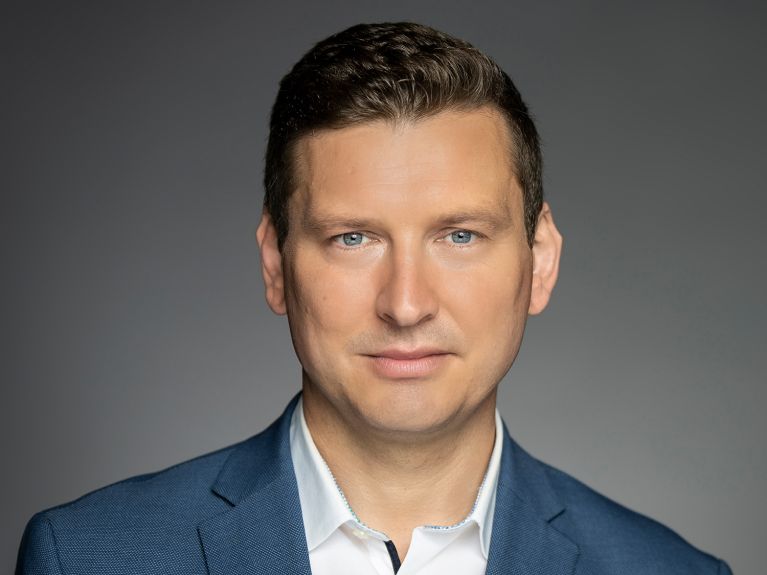“Research outcomes have to be put into practice”
How does Germany promote the transfer of scientific research to practical application? An interview with Mario Brandenburg, State Secretary at the Federal Ministry of Education and Research.

Mr Brandenburg, as State Secretary can you tell us what Germany is doing to promote the transfer of scientific research into practice?
Research and development (R&D) are key to our prosperity and to Germany’s international competitiveness. This is why we’re sticking to our ambitious goal of increasing the proportion of gross domestic product spent on research and development to 3.5 percent by 2025. With an R&D ratio of 3.13 per cent in 2022, Germany is already one of the countries with the highest level of R&D expenditure in Europe. And we intend to continue down this road: after all, the outcomes of research and science have to be put into practice, too, and have an impact on society and the economy. So even more has to be done to consistently transfer research findings to practical application. Transfer is a task spanning multiple areas of expertise when it comes to pursuing a future strategy in the area of research and innovation. The aim is to create a new transfer and start-up culture. We’re taking a major step in the right direction here with DATIpilot and DATI.
What are the most important goals of the Agency for Transfer and Innovation (DATI)?
DATI aims to ensure swift and effective transfer of the results of applied research at German universities and research institutions so as to boost the transfer culture throughout Germany. To this end, it will develop needs-based funding programmes and other transfer support services – for example by providing information and advisory services for transfer stakeholders and pursuing systematic networking. DATI will be pursuing an approach that is as open-ended as possible, involving all nationwide transfer and innovation stakeholders and taking into account both technological and social innovations. It will also work closely with structures already established in the field of transfer and innovation so as to become integrated in the existing transfer ecosystem. All in all, the purpose of DATI is to make a significant contribution to solving economic, social and ecological problems in Germany.
What has been achieved in the area of knowledge transfer to date?
There are lots of examples of successful transfer in Germany. The need for transfer funding is also demonstrated by the DATIpilot funding guideline: this has enabled us to generate a very high level of demand throughout the knowledge, technology transfer and innovation community in Germany. We received almost 3,000 outlines for innovation sprints, i.e. fast-track transfer projects, and nearly 500 ideas for innovation communities. DATI will seek to build on this momentum. One example here is the successful development of an mRNA vaccine during the COVID-19 pandemic. Enabling people all over the world to return to a normal life by developing its COVID-19 vaccine, Biontech has grown from a former winner of the biotechnology start-up initiative GO-Bio run by the Federal Ministry of Education and Research into one of Germany’s biggest biotech companies.
How can start-ups and innovations be supported through knowledge transfer so as to boost innovation potential in Germany?
For the first time, the German government has adopted a comprehensive start-up strategy with the aim of strengthening the start-up ecosystem. One focus of the strategy is innovative start-ups and in particular spin-offs that come out of the German research system. These often face particular challenges, such as the transfer of IP rights from research institutions. This is where we want to provide targeted support. In the BMBF-funded pilot project IP Transfer 3.0 being run by the Federal Agency for Disruptive Innovation, SPRIND GmbH, research institutions are developing and implementing new models for more efficient IP transfer and trying out approaches that have rarely been used before or not at all, such as the virtual participation model.
How important is international cooperation when it comes to knowledge transfer?
We face urgent global challenges. If we want to proactively engage in shaping the solutions and do everything we can to maintain and expand technological sovereignty, it’s essential for us to be involved in global knowledge flows and innovation processes. Germany maintains numerous successful science and research partnerships with countries in the EU and worldwide. This will help us secure and increase innovative capacity in Germany and Europe. At the same time, we need to reduce the risk of any undesirable outflow in the case of sensitive technologies.


